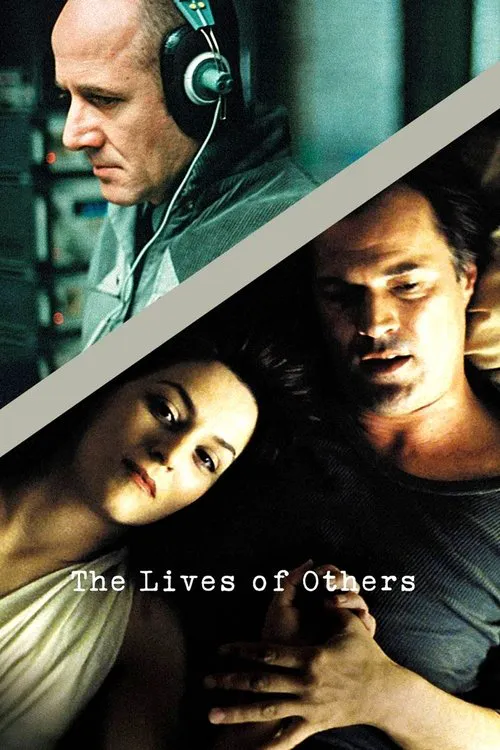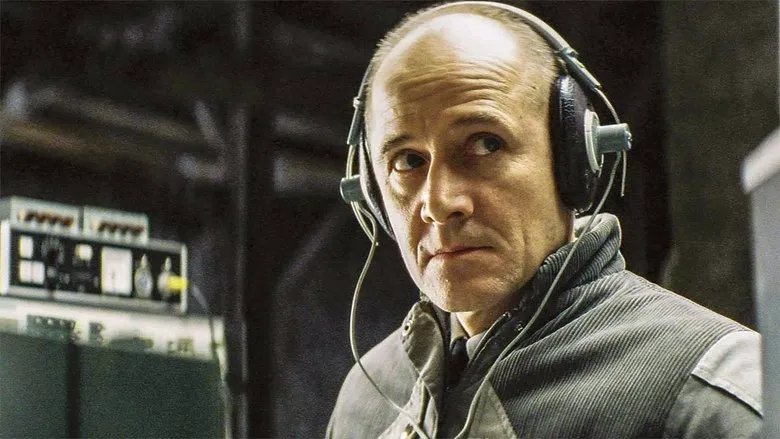The Lives of Others

Plot
The Lives of Others is a 2006 German drama film written and directed by Florian Henckel von Donnersmarck. The story takes place in 1983 East Berlin, a time when the Soviet Union's influence was still strong and the East German government was enforcing an iron-fisted regime under the rule of Erich Honecker. The film is set against this backdrop of paranoia, censorship, and surveillance, where the Stasi, the East German secret police, exerted immense control over the lives of its citizens. The film revolves around Gerd Wiesler (played by Ulrich Mühe), a dedicated Stasi officer who is assigned to spy on a prominent playwright, Georg Dreyman (played by Sebastian Koch), and his actress mistress, Christa-Maria Sieland (played by Martina Gedeck). Wiesler's mission is to gather intelligence on Dreyman, believed to be a potential threat to the regime due to his influential position in East German society and his growing anti-government views. Wiesler's superior, Lieutenant Colonel Grubitz (played by Thomas Bruno), orders him to report on Dreyman's activities, ensuring that the playwright's work is closely monitored and censored. Wiesler begins his surveillance, monitoring Dreyman and Christa-Maria's daily lives, from their morning routines to their social gatherings. As he observes them from a hidden position in their apartment, Wiesler grows increasingly sympathetic to the couple, despite his initial intentions to simply gather information. He is particularly affected by Christa-Maria's struggles with her conscience and her feelings of being trapped in a loveless marriage. As the days pass, Wiesler finds himself drawn to the couple's emotional world, and his feelings of empathy and understanding begin to cloud his judgment. Meanwhile, Wiesler's relationship with his superior, Grubitz, becomes complex and strained. Grubitz, who is infatuated with Christa-Maria, begins to manipulate Wiesler into reporting on her, using their surveillance as a means of getting closer to her. This creates a conflict of interest for Wiesler, who must now choose between his loyalty to the Stasi and his growing feelings for Christa-Maria. The Lives of Others is a poignant exploration of the human condition, where the boundaries between loyalty, morality, and personal relationships become blurred. The film is a scathing critique of the repressive regime of East Germany, where every aspect of a person's life was monitored and controlled. Wiesler, a character who began as a stoic, by-the-book Stasi officer, is transformed by his experiences with Dreyman and Christa-Maria. He is forced to confront the harsh realities of his work and the regime he serves, leading him to question the true nature of his role. Throughout the film, Florian Henckel von Donnersmarck masterfully weaves together the lives of the characters, creating a rich tapestry of emotions, politics, and social commentary. The cinematography is breathtaking, with the use of muted colors and stark lighting that evokes the oppressive atmosphere of East Berlin. The performances of the cast are exceptional, with Ulrich Mühe delivering a nuanced and complex portrayal of Wiesler. The film's climax is a heart-wrenching moment of revelation, where Wiesler's growing sympathies for Dreyman and Christa-Maria ultimately lead him to make a choice that goes against his loyalty to the Stasi. The film's final moments are a powerful indictment of the regime and a testament to the human spirit's ability to resist oppression. The Lives of Others is a masterpiece of cinematic storytelling, a film that has captivated audiences worldwide with its thought-provoking themes, memorable characters, and outstanding performances. It is a film that will stay with viewers long after the credits roll, leaving them to ponder the complexities of human relationships and the resilience of the human spirit in the face of tyranny.
Reviews
Articles
1. The Lives of Others Review: A Classic Exploration of Power, Humanity, and Justice

The Enduring Power of “The Lives of Others”“The Lives of Others” (original German title: “Das Leben der Anderen”) continues to be a cinematic experience that resonates deeply. Its intricate narrative,
2. Review of the film "The Lives of Others"

The Intriguing Tale of “The Lives of Others”: A German Film That Echoes Through TimeFlorian Henckel von Donnersmarck’s “The Lives of Others,” an Oscar-winning German film, has finally graced Moscow’s
Recommendations




